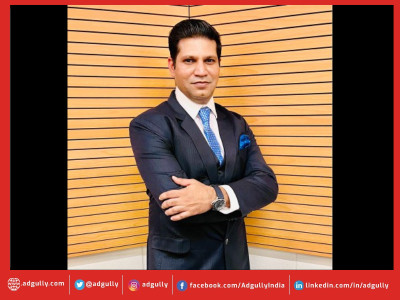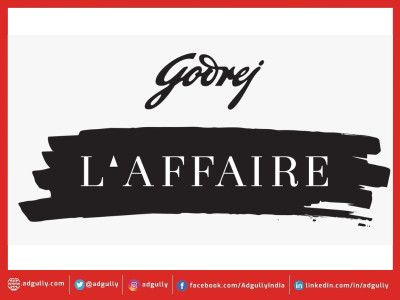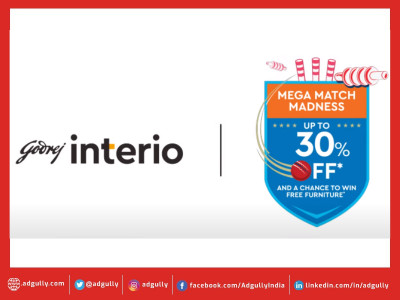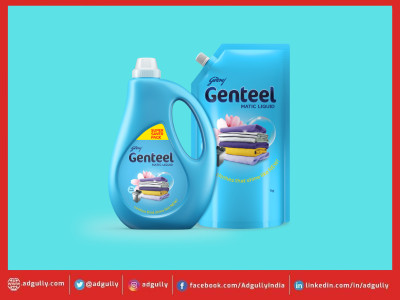“In the times of rising fake news, media has put its trust on data-driven storiesâ€
The pandemic and the resultant lockdowns have been one of the biggest disruptors of human life in history. The situation in the pandemic times has changed a lot – both in terms of human behaviour and people’s approach to health.
To understand and gauge the behaviours across the country, Godrej Group conducted a research study, which sought to analyse the daily routines, habits and gestures adopted by the people to make their lives more tolerable during the 10 months of lockdown across 13 cities of India. The research findings showed how people across cities, age-groups and genders have responded to the trying times. While some have discovered great interest towards altruism and financial prudence, others have taken steps to protect their own health and mental wellbeing. The findings further helped Godrej to drive positive narratives in the media with authentic stories depicting the Godrej thought leadership in the said spaces.
SCREENXX Awards 2021 Early Bird Discount for nomination of Digital Video Content and OTT Platform.. - Tuesday, August 31, 2021 - ENTRIES OPEN
In an exclusive conversation with Adgully for our special column on PR Conversations, Sujit Patil, Vice President and Head Corporate Brand and Communications, Godrej Industries Ltd and Associate Companies, shared sights from this research and how they plan to leverage the same for their PR and communication campaigns.
What was the objective behind conducting this behavioral research during the pandemic in the 12 cities? What was the mix of the audience in your sample?
The idea of our ‘Little Things We Do’ research emerged from a campaign that we did just before the pandemic. We had launched a video with the same name to highlight the ‘Little Things We Do” as a group to make our consumers’ lives better and brighter. Post the onset of pandemic and the subsequent lockdowns, we felt people needed a reminder that even little contributions can lead to big change. Amidst the pessimism and scepticism in the environment, we wanted to explore how little contributions by people and organisations have created a long-lasting impact on the lives of people around them. The objective was to bring to the fore the ‘good’ things that people have done to alleviate the perils of the pandemic.
The research findings show how people across cities, age-groups and genders have responded to the trying times. While some have discovered great interest towards altruism and financial prudence, others have taken steps to protect their own health and mental wellbeing. It has a direct connection with many of the categories that we operate in viz., ergonomic furniture, personal hygiene, security, snacking, appliances, etc. The findings helped us drive positive narratives in the media with authentic stories depicting the Godrej thought leadership in the said spaces.
The research was undertaken based on interviews with over 2,750 Indians across various cities like Ahmedabad, Bengaluru, Chennai, Delhi, Hyderabad, Kolkata, Mumbai, Pune, Chandigarh, Indore, Kochi and Lucknow between September and December, 2020.
How do you plan to leverage the key insights and plan to apply in your brand and PR communication?
In times of shrinking editorial spaces and rising fake news, media has put its trust on data-driven stories. Customers, too, today are substantially more motivated by a brand’s transcendent purpose (how it improves lives) than by its transactional purpose (how it sells goods and services). Narratives are an interesting way of weaving data-driven stories which are closer to one’s brand. As I said earlier, the insights from the study will be used to drive positive narratives in the media with authentic stories depicting the Godrej thought leadership in the said spaces.
The research has thrown up a lot of findings and insights. Can you highlight some of the key insights that stood out and that will help in strengthening your brand equity further?
One of the most startling findings was that despite several initiatives and campaigns by the government and brands, nearly 15% of people in the target group of this study have not adopted hand sanitisation as a measure to safeguard their health and happiness. This was disappointing since hand and product sanitisation are the first shield against pathogens. This only strengthens our resolve to push for more communications in this space.
Similarly, our findings revealed that over half the respondents (52%) have become mindful of the environment by undertaking activities like growing plants and preserving energy. A majority of this can be credited to the generation comprising millennials and Gen Z. With the disposable income, world-wide exposure, these peers display an ecologically and socially conscious consumer behaviour. This validates our belief and strengthens our resolve towards adhering to sustainable practices.
These insights are authentic, data-driven stories reflective of the consumers’ current mindset and living up to them will help strengthen their positive disposition towards Godrej.
What would be the frequency of such study? Would this be part of the overall corporate strategy of Godrej to keep engaging with your audience to get the right picture as the pandemic has brought in a lot of shifts in consumer behaviour?
This study is a part of our overall strategy to create research and data driven narratives that are conducive forour brands and categories that we operate in. We aim to do such research driven narrative setting at frequent intervals.Our belief is that corporate and brand performance is being observed very carefully, and being an authentic raconteurbuilds a strong relationship of equity with the audience. Whether for storytelling, crisis mitigation or influencer engagement, without data you are going to just spray and pray. Also, owing to the exposure to fake news and branded content, there is a cognitive ad-blocker that switches on every time a consumer today sees content that looks like tall advertising claims. Therefore, stories you share with audiences must be factual, data-driven, and more inclusive. One way to do this is use research-driven narratives to tell your stories. The truth is that in the times of shrinking editorial spaces and rising fake news, media has put its trust on data-driven stories.
Godrej has been a trusted and strong brand for over a century. How does the company plan to change gears post the pandemic to maintain the momentum and engage with the younger audience?
For us, regardless of the age and demography, empathetic and authentic communication has always formed the core of our corporate brand and communication strategy.
The pandemic has taught us simple lessons to enhance the effectiveness of our communications.
For example, ‘Being heard’ is one of the most precious aspects that the audiences seek today from the brands. So, one must make audiences the protagonist and not limit the engagement to transactional purposes. Our communication strategy is, hence, built on the principles of ABC – Authentic narratives, Bi-directional communication channel, and Co-creation of content.
In addition to the other oft-used integrated communication tools, direct communication channels have emerged as a key source of communicating to and connecting with the TG. We are, therefore, enhancing our focus on our owned media platforms and apart from the existing ones, viz. Godrej L’Affaire, Vikhroli Cucina, and Design Dekko, we are venturing into many more such community building platforms that bring together brands, influencers, and consumers to co-create content and engage wider audiences.
















Share
Facebook
YouTube
Tweet
Twitter
LinkedIn